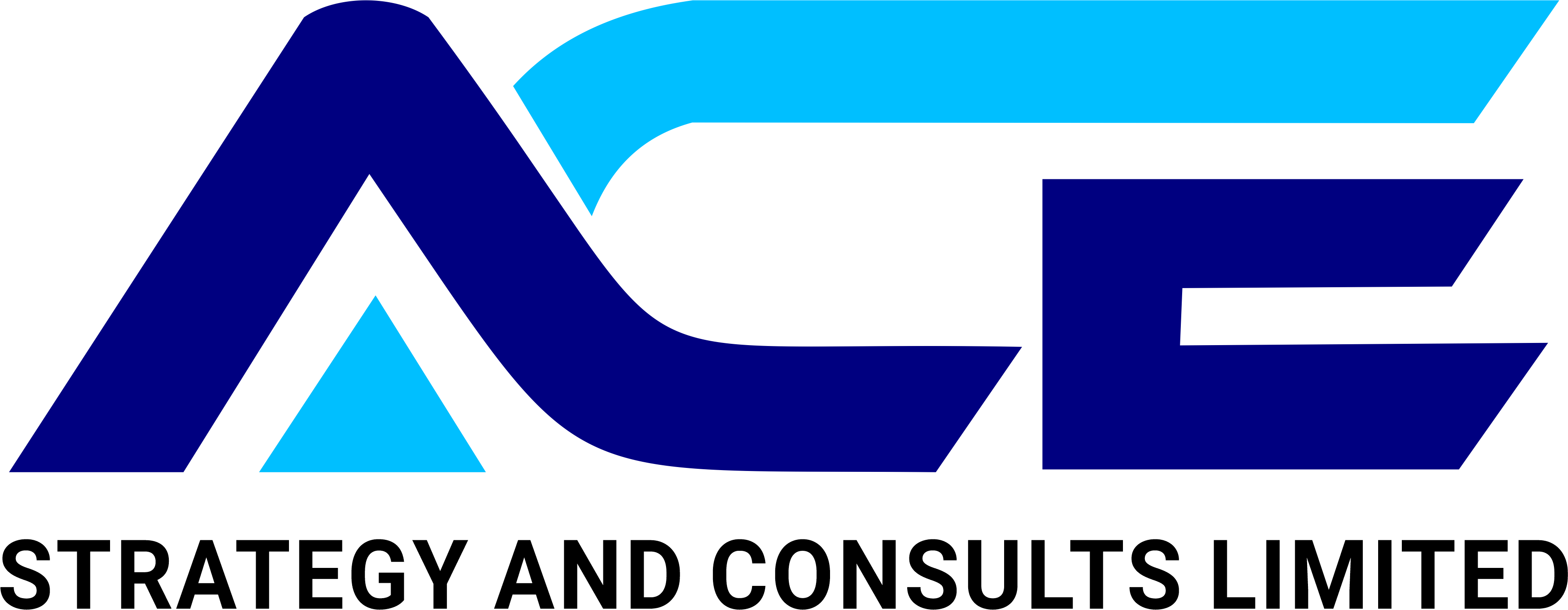For decades, Nigeria has relied on official development assistance to implement health intervention programs ranging from routine immunization to providing life-saving HIV treatment. But there has always been a potential threat of funding cuts and freezes to the sustainability of such interventions and if that happens, then what? This is no longer a hypothetical threat; it is happening now.
In recent months, the global funding landscape for development aid has shifted quite dramatically. The U.S. government’s recent pause on USAID programs, funding cuts to Gavi and WHO, following a steadier decline in global funding for health since 2015 signal an urgent wake-up call. While there was a transient spike in global financial contributions to development aid during the COVID-19 pandemic, donor fatigue, shifting geopolitical priorities, and rising nationalist politics in high-income countries have led to this sustained decline in development assistance for health.
This is quite obviously a problem for Low- and Middle-Income countries such as Nigeria who have historically relied on this type of funding to support otherwise weak health system, but the stark reality is that: No country has ever achieved universal health coverage (UHC) by relying on external funding. Those that have made real progress did so by prioritizing health in their national budgets and ensuring that domestic resources drive healthcare investments.
This emerging reality shaped a high-level discussion convened by ACE Strategy and Consults, bringing together leading experts to explore Nigeria’s path toward self-sufficient health financing. The consensus? The future of Nigeria’s health system depends on local solutions—not foreign aid.
The State of Health Financing in Nigeria: A Reality Check
Nigeria’s health financing system is at a critical crossroads. For years, the country has struggled with chronically low investments in health, and the consequences are evident. Chronic underfunding, low per capita health spending, and insufficient government allocations have led to inadequate service coverage.
Dr. Gafar Alawode, CEO of DGI Consults, and a leading expert in health financing, painted a stark picture of the situation:
“Health financing in Nigeria—particularly public financing for health—is suboptimal by every measure. This includes per capita health spending, the proportion of the government budget allocated to health, and health expenditure as a share of GDP”.
The numbers tell the story. External financing still accounts for about 10% of total health spending, and a staggering 94% in HIV treatment, while out of pocket expenditure accounts for up to 75% of total health spending. Since the turn of the millennium, Nigeria’s Universal Health Coverage (UHC) Index has barely moved—from 20 to just 38 out of 100—remaining stubbornly below the Sub-Saharan Africa average. This sluggish progress further reiterates the fundamental problem: Nigeria is not investing enough in healthcare to meet the needs of its population.
“Even before the US government decided to pause aid, it was well established that foreign aid is not a reliable long-term solution for health financing,” Dr. Gafar noted.

Yet the challenge extends beyond just spending levels. The country’s heavy reliance on foreign aid has long been a fragile safety net, one that is now unraveling. Even before the recent shifts in donor priorities, experts had warned that foreign aid was never meant to be a permanent solution.
Rethinking Nigeria’s Health Financing Strategies: What is being done?
Experts highlighted key solutions, including the Basket Fund model, health insurance expansion, and a sector-wide approach (SWAp) to coordination.
The Basket Fund: A Model for Shared Responsibility
Dr. Raihanah, A principal at Solina Centre for International Development and Research (SCIDaR) spoke extensively about the Basket Fund, an initiative involving the Bill & Melinda Gates Foundation, the Aliko Dangote Foundation, and Nigerian state governments. Designed to improve routine immunization, this model requires government co-funding, fostering accountability and sustainability.
“The key to sustainability is ensuring that government ownership increases as donor contributions phase out,” she stated.
By gradually shifting financial responsibility from donors to state governments, the fund has strengthened financial management and reduced vaccine stockouts in participating states.
One major issue that is being addressed by the basket funding mechanism is accountability.
“People finally feel comfortable putting money into government accounts, knowing it would be used as intended,” she noted.
Stringent financial oversight ensured resources were spent efficiently, setting a precedent for expanding the model to other health programs.
Expanding Health Insurance: The Untapped Potential
Dr. Yakubu (Director of Standards and Quality Assurance at the National Health Insurance Agency) addressed the challenges of Nigeria’s National Health Insurance (NHI) scheme, citing low enrollment rates despite reforms like the 2022 NHI Act.
Currently, only 9-10% of Nigerians are enrolled in health insurance. While initiatives like the Vulnerable Group and Basic Health Care Provision Fund have increased coverage, broader public awareness and robust operational guidelines are needed.
“The Vulnerable Group Fund has the potential to expand coverage, but we must increase domestic funding and improve efficiency to make healthcare accessible for the poor,” he stated.
The discussion also emphasized the need to combat inefficiencies and waste, particularly in human resources for health. Dr. Yakubu called for a holistic approach:
“We must think more money for health and more health for the money we have.”
The Sector-Wide Approach (SWAp): Breaking Silos in Health Financing
One of the major challenges in Nigeria’s health sector is fragmentation—multiple funding streams operating in isolation, leading to inefficiencies and duplication of efforts. To address this, the government has adopted the Sector-Wide Approach (SWAp), a mechanism aimed at improving coordination between government agencies, donors, private sector actors, and civil society organizations.
Dr. Muntaqa Umar-Sadiq from the SWAp coordination office, ably represented by Hyeladzira Garnvwa emphasized the need for a unified vision where all stakeholders contribute to a common health agenda rather than working in silos.
“We need a system where resources are pooled and aligned with national priorities to ensure sustainability and efficiency,” she noted.
In states where coordinated funding mechanisms have been successfully implemented, targeted interventions have achieved very high coverage rates, demonstrating the potential impact of an integrated approach.
The private sector plays a critical role in this coordinated approach. To enhance efficiency, a comprehensive resource mapping and tracking exercise was recently conducted. This assessment examined the fiscal space for health financing, capturing donor commitments, government allocations, and private sector contributions. The next step involves deepening private sector engagement, leveraging homegrown funding sources from organizations like the Tony Elumelu Foundation, Mastercard Foundation, and the Private Sector Health Alliance.
“The goal is to transition from reliance on external systems to an integrated, harmonized approach—one that aligns resources, strengthens accountability, and ultimately delivers better health outcomes for Nigerians.” – Hyeladzira Garnvwa
The Way Forward: Turning Talk into Action

As the discussion wrapped up, it was evident that while challenges remain, there are practical steps Nigeria can take to secure the future of its health financing. The importance of political will was emphasized, urging policymakers to prioritize health investments at both national and state levels.
“Health financing goes beyond the Ministry of Health—it involves Finance, Economic Planning, the National Assembly, and State Assemblies. How do we ensure the right political appetite for increased health spending?” – Dr Gafar
The good news is that progress is possible. There are successful examples of domestic resource mobilization, demonstrating that strategic investment leads to results. Liberia saw a 500% increase in HIV spending through domestic funding. The federal government has expanded investments into new health areas once reliant on donors, while states have created budget lines for health security and family planning. In Lagos and other states, TB and family planning have been integrated into health insurance schemes.
“We cannot afford to wait until donor funding disappears entirely before taking action. The time to transition to domestic financing is now.” — Dr. Raihana
Key Next Steps for Sustainable and Efficient Health Financing
From the rich discourse, the following next steps were identified to enhance health financing sustainability and efficiency:
-
Effective Coordination & Uniformity: The lack of synergy between different funding sources leads to inefficiencies and duplication of efforts. A well-structured sector-wide approach (SWAp) is necessary to align government, donors, and the private sector towards a unified health agenda.
-
Enhancing Efficiency & Reducing Waste: Public financial management reforms should focus on ensuring optimal resource allocation, accountability, and value for money. Resource mapping and tracking must be strengthened to prevent duplication and misallocation of funds.
-
Local Leadership & Advocacy: Identifying and engaging local champions who can advocate for health financing reforms.
-
Enabling Environment & Policy Frameworks: Establishing clear policies that support domestic resource mobilization and encourage private sector participation.
-
Realistic Costing & Budgeting: Some states face challenges in determining the exact funding needed to improve health outcomes. Developing accurate cost estimates and a clear funding request is essential
-
Integration of Funding Requests: Currently, HIV, TB, immunization, and other programs compete separately for funding. A more coordinated, integrated approach is necessary to maximize available resources.
-
Leveraging High-Net-Worth Individuals & Private Sector Contributions: Local philanthropists and influential leaders must be mobilized to support health system strengthening efforts.
Join the Movement
This is more than just a conversation—it’s an opportunity to reshape Nigeria’s health system for future generations. Whether you are a policymaker, healthcare professional, or concerned citizen, you have a role to play in pushing for sustainable and efficient health financing.
ACE Strategies and Consults remains committed to driving Nigeria’s health financing reforms by fostering evidence-based strategies, advocating for stronger policies, and convening key stakeholders.
Let’s keep the momentum going and ensure that Nigeria builds a resilient and self-sufficient health system!


